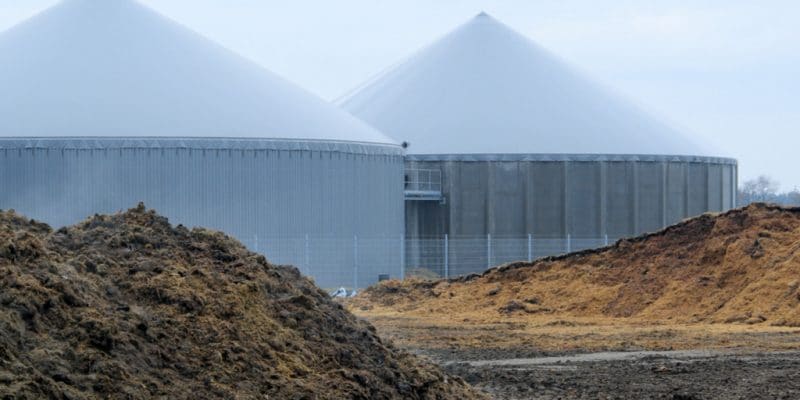The start-up Lono transforms organic waste into useful fertiliser in agriculture and captures biogas that will be used to produce electricity in Côte d'Ivoire.
The population of Africa continues to grow. In a country like Ivory Coast, this growth is around 2.5% per year according to the World Bank; so there is a need to produce more food and that means fertilising the soil. The good news is that, rural areas produce tons of organic waste every day and it is still necessary to be able to value them.
In response to this problem, Noël Kombo N’Guessan of Ivory Coast and his fiancée, Louise Bijleveld of the Netherlands, launched the Lono start-up, which aims to improve living conditions in rural areas and promote access to energy. To succeed in their business, these two graduates in biotechnology and sociology are exploring the path of waste recovery.
The beginning was sociology
Louise Bijleveld’s competence as a sociologist is very useful for the start of the project in 2015. She studies the populations of rural areas in the country to understand the problems they face. “My goal is to offer a specific fertiliser to each locality, according to its needs in terms of cultivation, but also its contribution in residues,” Noël Kombo N’Guessan, an engineer, tells the weekly magazine Jeune Afrique.
For example, the start-up Lono has installed waste fermentation units in several localities. This is the case in Tiassalé, a small town 121 km from Abidjan, where 300 households benefitted from a garbage composting programme. Concretely, the populations bring their waste to the young company. In exchange, Lano will pay their household waste collection taxes.
Biogas production rewarded
Rural areas also have a serious energy access problem and to solve this problem, the start-up will rely on breweries, slaughterhouses and processors of agricultural products. These help the young company to rent biogas production units. In exchange, Lono has undertaken to provide them with electricity produced from biogas.
It was certainly this aspect of Lano’s activities that interested the electricity company of France, known as Électricité de France. On December 19, 2017, EDF and two other start-ups won the EDF Pulse Africa prize, which rewards innovators who offer solutions in the areas of electricity generation, access to water or electronic services and uses. The start-up thus manages with a financial allocation of 10,000 euros (more than 6 million CFA francs). This sum will enable it to support part of its investments, which to date amount to 40,000 euros.
Jean Marie Takouleu







